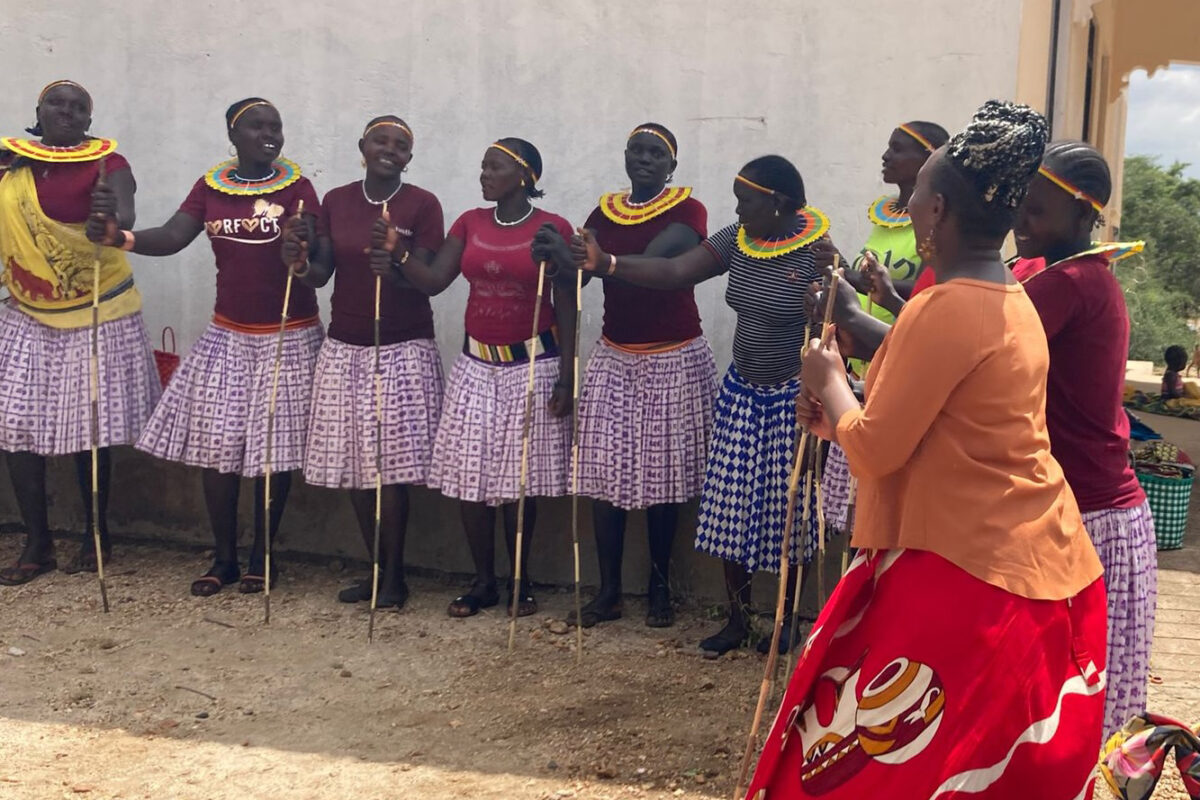“A girl child is money in the pocket. Once she is ready, she can fetch the bride price (cattle). School is a waste of time.”
“Women have many children because if her husband dies, she may be passed on to a brother, and he expects his own children.”
“If we go in secret to get contraception, our husbands will wonder why we’re not getting pregnant. He’ll get suspicious and violent.”
These comments, echoed across different communities in the Karamoja region in north-eastern Uganda, hit hard, but for thousands of families, it is reality. In this region, 50 percent of children enter marriage before the age of 18. With communities facing the impact of climate change and of cattle raids, many are struggling to earn enough and feed their families, creating greater pressure for child marriage. Among the root causes are the barriers preventing women and girls exercising their rights.
In addition to child marriage, many children are trafficked to the cities for forced begging, domestic work and sexual exploitation, while adolescent boys are exploited as cattle rustlers – known locally as ‘warriors’. Unable to get a livelihood or complete their education, the boys, often aged 12 – 16, are equipped with guns and join in the lethal raids to steal cattle. Previously, the raided cattle were most often herded as part of the pastoralist lifestyle, but now it is a more commercial operation, with the cattle being loaded onto trucks and sold for the growing demand for beef. It is extremely hard for the boys to leave the gangs of raiders because they have too much information – and because they have no means of survival if they leave.
The pressures for early marriage and trafficking of children are not just about gender inequalities: pastoralist, nomadic herding livelihoods that were well-adapted to the arid environment have been broken down by cattle raiding and climate change – while the increasingly unpredictable rainfall makes it hard for people to change to growing crops.
Despite these devastating trends, some of the communities are generating realistic ways forward – steps that embody hope, from within their own context. For several years, a group of 20 women, calling themselves ‘Kaw’ meaning ‘Homestead’, from the Pokot sub-ethnic group, have met every Sunday evening (with support from Vision Care NGO). They are a tight-knit group, supporting each other to be able to make some crucial household decisions. Yet, to have a say in their family, they need to earn their own income, such as from selling maize snacks at market, as well as having clarity about what they think matters most. For this group, based on their own life experiences, their priority is to make sure that at least some of the girls can go to school, as well as abandoning female genital mutilation (FGM) and early marriage. Without their own cash, they cannot negotiate with husbands, but with their own money, they can buy children’s school supplies. While they are at the market they make sure to talk to people from other areas about early marriage and the risks of FGM.
Their exceptional determination is opening up a different set of possibilities for their children, and their outreach is helping protect many others. But although they have achieved so much, one challenge seems beyond their power: persuading their husbands to let them space their children. If men have paid a bride price, they expect to have many children in return. The fertility rate in the area is one of the highest in the world – women of reproductive age give birth to an average of 8 children. However, a hopeful voice from the group emerged – one of the women spoke up, saying she’s managed to have a space of 4.5 years between her children. It makes a massive difference in her life and in the prospects of her children. She persuaded her husband, and now the benefits have convinced him too: He sees that she is no longer malnourished, and the family benefits because she has time to earn money collecting and selling aloe vera.
Being part of the group, her success can give hope to others. No outsider would be credible to advise these women on how to do this or to support them in the risks.
In a nearby district, a group of young men is also doing exceptional work that, similarly, only they can do. They are one of the men’s groups set up by the Karamoja Women’s Umbrella Organisation (KAWUO), and they tackle multiple issues in their community. They have no patience for men who “lie sleeping under trees”. One young man who had previously stolen from other people explained that he saw incredible changes in the group members and decided that he wanted to be a part of something he admired.
In an area where many young men have been pulled into lethal cattle raiding, the group members reject all forms of violence, and they are confident to intervene to stop husband abusing their wives. Also, they report rape cases to the police, challenging the acceptance of rape as a way for girls to be forced into marriage.
These men are setting a radical example: they accompany children to school, they go with their wives to antenatal care and help with food production. They try to balance out the tasks, so that if the woman is going to look for work, they will collect water. They explained that men can wash clothes and sweep the compound.
These are just some of the ways that people in Karamoja are trying to uproot child marriage, child warriors and trafficking.
Since it was established in 2014, the Freedom Fund has supported some 1.5 million people vulnerable to trafficking around the world by partnering with grassroot organisations, allowing for greater collaboration and providing both funding and technical assistance to strengthen their interventions. This work has included our programs in Ethiopia, where our partners work on reduce the trafficking of women who migrate to the Middle East for domestic work, and Kenya, where our partners aim to end the exploitation of child domestic workers.
The Freedom Fund is now aiming to develop a program guided by community groups in Uganda, identifying partners throughout 2024. Our goal is to reduce the current levels of child marriage, child trafficking and use of children as warriors – especially through women and girls developing ways to exercise their rights.
Note: Work carried out currently by Vision Care and KAWUO is supported by other funders as well as local self-help.




